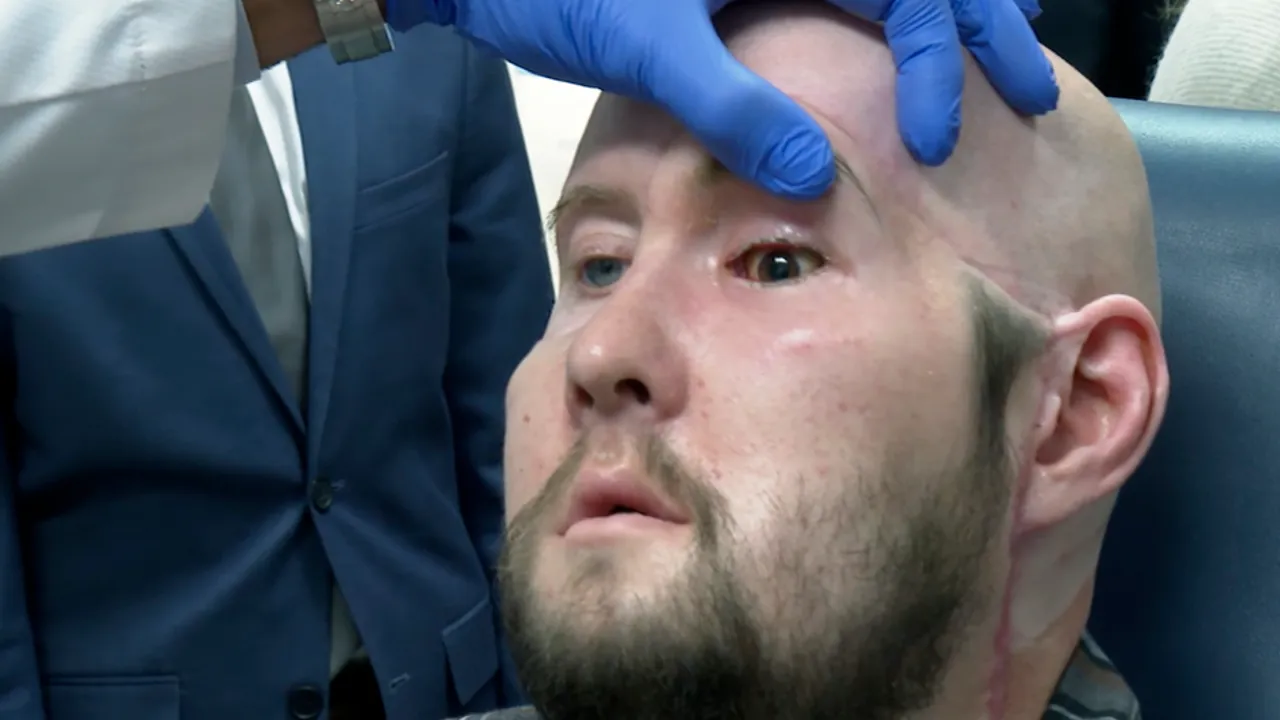Full Eye Transplant Offers Hope for Restoration of Sight

Eye Transplant Breakthrough in Medical Innovation
Aaron James, a 46-year-old soldier, faced a devastating accident in 2021 that resulted in substantial facial damage, leading him to undergo a partial face transplant. In a groundbreaking procedure, researchers at New York University's Langone Health Medical Center successfully performed the world's first full eye transplant. This pioneering surgery not only restored facial appearance but also maintained normal pressure and blood flow in the transplanted eye.
Progress and Future Hope in Transplantation
Despite not regaining vision immediately, Aaron and his medical team are optimistic about future advancements. Dr. Vaidehi Dedania, overseeing his recovery, stated, “Our post-operative results are extraordinary. These results could inspire research into transplants for critical sensory organs.” The team utilized electroretinography tests to assess the donor eye's survival, reinforcing aspirations that vision restoration could be possible in the future.
Challenges of Eye Transplants
Eye transplants encounter numerous hurdles due to the intricate nature of this sensory organ. Dr. Eduardo Rodriguez, Director of the University's Facial Transplant Program, emphasized their commitment to exploring methods to restore James' vision through the transplanted eye. James, now the first person in the US to receive a whole-eye transplant, illustrates the potential progress in reconstructive surgeries and sensory organ transplantation.
This article was prepared using information from open sources in accordance with the principles of Ethical Policy. The editorial team is not responsible for absolute accuracy, as it relies on data from the sources referenced.